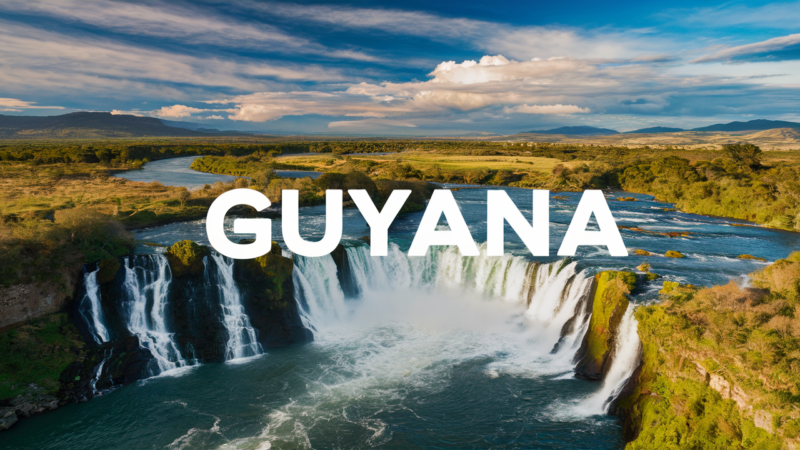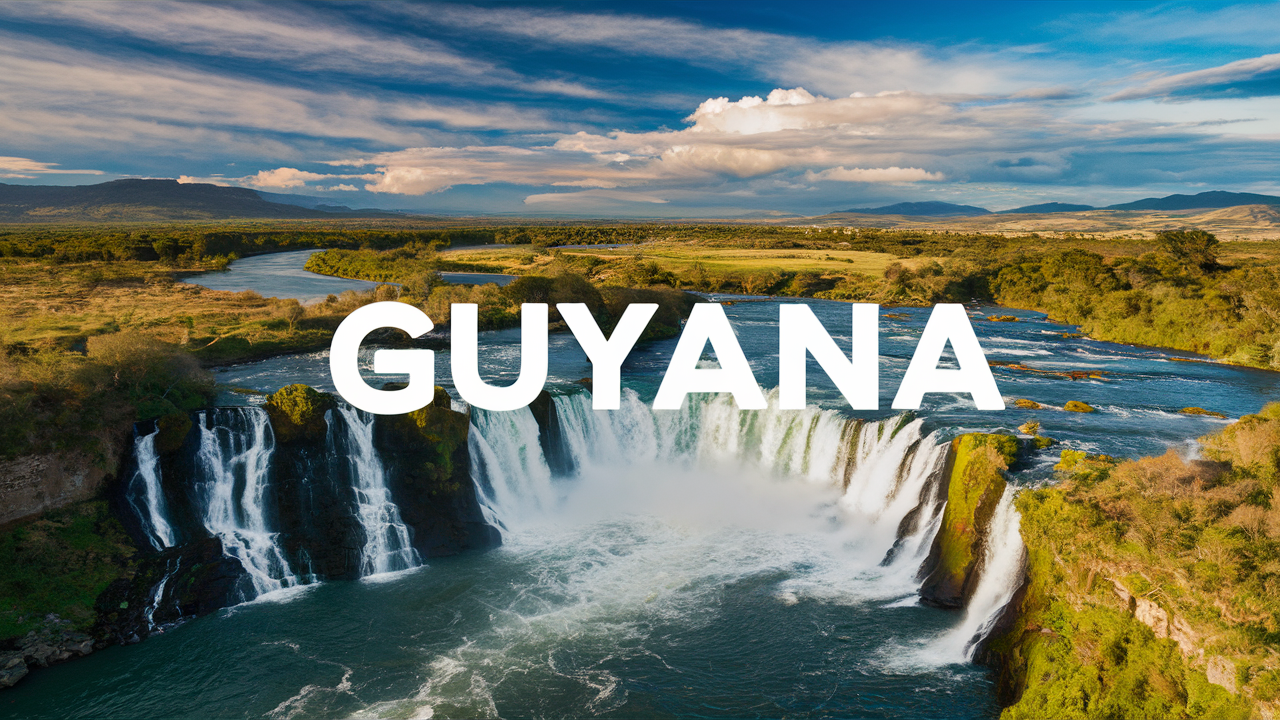Did you know that Guyana’s capital city, Georgetown, has one of the highest murder rates in the world? According to the U.S. Department of State, violent crime, including murder and armed robbery, is an alarming reality that travelers to Guyana must reckon with.
As someone who has always dreamed of exploring the lush rainforests and diverse cultures of Guyana, this travel advisory hit me hard. I couldn’t help but wonder, “Is it still safe to visit this fascinating country?” The thought of becoming a victim of crime while on vacation is enough to make even the most seasoned traveler reconsider their plans.
The U.S. Department of State has issued a stark warning for Guyana travel, urging U.S. citizens to “reconsider travel” to the country due to the high levels of Guyana travel risks and Guyana security situation. Violent Guyana crime rates, including murder and armed robbery, are prevalent across the country, often associated with illegal drug trafficking.
Homicides, assaults, break-ins, armed robberies, theft from cars, and carjacking are just a few of the Guyana travel risks that travelers may face. The advisory recounts incidents of foreigners being robbed at gunpoint and attacked after withdrawing money from banks, shopping districts, and hotels.
If you’re considering a trip to Guyana, it’s crucial to heed the Guyana travel warnings and take extra precautions to ensure your safety. Avoid walking or driving at night, don’t display signs of wealth, and enroll in the Smart Traveler Enrollment Program (STEP) to receive security messages and enable easier location in an emergency.

Key Takeaways
- The U.S. Department of State has issued a travel advisory for Guyana, recommending that U.S. citizens reconsider travel to the country due to high levels of violent crime.
- Violent crime, including murder and armed robbery, is prevalent across Guyana and often associated with illegal drug trafficking.
- Foreigners have been targeted, with incidents of being robbed at gunpoint and attacked after withdrawing money from banks, shopping districts, and hotels.
- Travelers are advised to be extra vigilant, avoid walking or driving at night, and not physically resist any robbery attempt.
- Travelers should also avoid displaying signs of wealth and enroll in the Smart Traveler Enrollment Program (STEP) to receive security messages and enable easier location in an emergency.
Overview of Guyana Travel Advisories
The U.S. Department of State has issued a travel advisory for Guyana, recommending that U.S. citizens “reconsider travel” to the country due to the high levels of Guyana travel warnings, including violent crime such as murder and armed robbery. The Guyana security situation is a major concern, with the advisory citing the prevalence of homicides, assaults, break-ins, armed robberies, theft from cars, and carjackings across the country.
Current Travel Advisory Level
The current travel advisory for Guyana is at a level that recommends U.S. citizens reconsider travel to the country. This advisory level is due to the elevated Guyana travel restrictions and security risks.
Reasons for the Advisory Level
The advisory cites the Guyana political climate as a significant factor contributing to the current travel warning. Violent crime, often associated with illegal drug trafficking, is reported to be common throughout Guyana. Foreigners have been targeted in incidents of armed robbery and attacks, particularly after withdrawing money from banks or in shopping districts and hotels.
Guyana Travel Advisory: Safety and Security Concerns
The Guyana travel advisory highlights the country’s concerning Guyana crime rates and prevalence of Guyana security situation involving Guyana travel risks and violent incidents. Violent crime, including murder and armed robbery, is alarmingly common, particularly at night.
Crime Rates and Violent Incidents
The advisory advises travelers to exercise increased caution in certain high-crime neighborhoods of Georgetown, such as the area 2 km south of Brickdam Street, Agricola, Albouystown, Albertown, Bourda, Buxton, East Ruimveldt, Sophia, Stabroek, Tiger Bay, and West Ruimveldt. Outside of the capital, the East Coast Demerara region, particularly near the villages of Buxton and Friendship, as well as the East Bank Demerara region and the New Amsterdam area, have also seen a troubling rise in violent incidents.
Areas to Avoid or Exercise Caution
Travelers are strongly cautioned against venturing into these crime-ridden areas, especially after dark. The Guyana safety tips recommend avoiding deserted or under-populated locations, paying close attention to one’s surroundings, and keeping car doors locked and windows closed at all times.
Tips for Staying Safe
To minimize the risk of becoming a victim of crime, the advisory urges travelers to not walk alone after dark, stay in accommodations with robust security measures, and verify the identity of any visitors before opening doors. Vigilance and prudent decision-making are essential for maintaining one’s safety while visiting Guyana.
Border Crossings and Regional Tensions

The Guyana travel advisory cautions that the security environment could deteriorate along the border between Venezuela and Guyana due to the ongoing discord over the Guyana Essequibo region. Travelers are advised to exercise caution and monitor local media if they choose to travel in the Guyana Essequibo region near the border with Venezuela. The advisory also notes that there are no official border crossings with Venezuela, and the areas near the border can be dangerous due to cross-border, gang-related violence.
Venezuela-Guyana Border Tensions
The Guyana-Venezuela border region has been a source of tension and political conflict for decades. The dispute over the Essequibo region, which is claimed by both countries, has led to increased military and security presence along the border. Travelers should be aware of the potential for escalating tensions and the risk of violent incidents in this area.
Official Border Crossing Procedures
Travelers are advised to avoid traveling near the Venezuela-Guyana border and to only use the official border crossings with Brazil and Suriname. The advisory cautions against using the services of independent boaters to cross into Suriname, as this is illegal, and foreigners have been fined or even detained and deported for doing so. Travelers should only use official ferry services and ensure they receive an entry stamp in their passport when crossing borders.
Road Safety and Transportation
Travelers to Guyana should exercise caution when it comes to road safety and transportation. The Guyana travel advisory highlights the country’s poor road conditions and the associated safety challenges. Main roads often have potholes, while secondary rural roads tend to be narrow, inadequately marked, and also suffer from pothhole issues. The advisory advises visitors to drive with extra care in Guyana, particularly avoiding nighttime driving, as road accidents are common and can be severe.
Road Conditions and Driving Hazards
Drivers in Guyana, especially those operating public transportation, can be erratic and often disregard road safety laws. This can increase the risk of Guyana travel risks for travelers. The advisory recommends that visitors avoid using privately owned minibuses, as they are frequently overloaded, poorly maintained, and badly driven, leading to a higher frequency of accidents.
Public Transportation Options

While taxis are generally a safer option for getting around Guyana, travelers should be aware that robberies and assaults can still occur. To minimize Guyana safety tips, the advisory suggests exercising caution when using any form of public transportation in the country.
Piracy and Maritime Safety
In addition to road-based risks, the Guyana travel advisory also warns of the threat of pirate attacks and armed robbery against ships in the country’s coastal waters. Travelers planning maritime activities or excursions should be aware of this potential danger and take appropriate precautions.
Health and Medical Considerations
Travelers to Guyana should be mindful of potential health risks and take necessary precautions. The
travel advisory emphasizes the importance of ensuring routine vaccinations are up-to-date prior to the trip. These include vaccinations for measles-mumps-rubella (MMR), diphtheria, tetanus, pertussis, polio, varicella (chickenpox), and influenza.
Recommended Vaccinations
In addition to routine vaccinations, travelers should consult a healthcare professional or visit a travel health clinic to discuss further recommended vaccinations. These may include yellow fever, hepatitis A, hepatitis B, COVID-19, and malaria, depending on the individual’s health status and travel plans within Guyana.
Food and Water Safety Precautions
The advisory also emphasizes the importance of taking food and water safety precautions while in Guyana. Many illnesses can be caused by consuming contaminated food or beverages, so travelers should exercise caution when dining and drinking. Bottled water is recommended, and any raw fruits or vegetables should be thoroughly washed and peeled.

Guyana Travel Advisory for Specific Groups
The Guyana travel advisory provides specific guidance for certain traveler groups. For women traveling alone, the advisory notes that they may be subject to some forms of harassment and verbal abuse. The advisory recommends that women travelers take appropriate precautions to ensure their safety when visiting Guyana.
Women’s Safety Considerations
Women traveling solo in Guyana should exercise increased caution and be aware of their surroundings. The advisory suggests that women avoid walking alone, especially at night, and take measures to blend in with the local population to minimize the risk of being targeted. Dressing conservatively and keeping a low profile can help mitigate the potential for harassment or verbal abuse.
Children and Family Travel
For families traveling with children, the Guyana travel advisory does not mention any additional safety concerns. However, it advises that travelers familiarize themselves with the country’s entry and exit requirements, as there may be specific rules or documentation needed for minors. Ensuring that all necessary paperwork is in order can help facilitate a smooth arrival and departure for families visiting Guyana.
By being aware of these specific considerations and taking appropriate precautions, travelers can help ensure their safety and security during their visit to Guyana. The advisory’s guidance on Guyana travel risks and Guyana safety tips can be invaluable for a range of travelers, from solo women to families with children.
Entry and Exit Requirements
Travelers to Guyana must ensure they meet the country’s entry and exit requirements. A valid passport with at least 6 months of validity beyond the expected departure date is required. Tourist visas are not required for stays up to 90 days, but business travelers must bring a business letter with information about the purpose of their visit.
Passport and Visa Information
Travelers to Guyana must have a valid passport with at least 6 months of validity remaining beyond their expected departure date. Tourist visas are not required for stays of up to 90 days, but business travelers must bring a business letter detailing the purpose of their trip. It’s important to ensure passports are properly stamped upon arrival, as failure to do so could result in difficulties leaving the country or even legal issues.
Customs and Immigration Procedures
The Guyana travel advisory cautions against using the services of independent boaters to cross into Suriname, as this is illegal, and foreigners have been fined or even detained and deported for doing so. Travelers should only use official ferry services and ensure they receive an entry stamp in their passport when crossing borders. Proper documentation and adherence to customs and immigration procedures is essential for a smooth entry and exit from Guyana.
Conclusion

The Guyana travel advisory issued by the U.S. Department of State clearly indicates that U.S. citizens should reconsider travel to Guyana due to the high levels of violent crime, including murder and armed robbery. Travelers are strongly urged to exercise extreme caution, avoid certain high-risk areas, and take proactive steps to minimize their risk of becoming victims of crime.
Also read: Malaysia travel advisory
The advisory provides comprehensive guidance on critical aspects of travel to Guyana, such as border crossings, road safety, health considerations, and entry/exit requirements. By thoroughly familiarizing themselves with this information and taking appropriate precautions, travelers can better ensure their safety and security while visiting Guyana.
Given the significant security concerns highlighted in the Guyana travel advisory, it is essential that U.S. citizens consider the risks carefully and make informed decisions about the necessity and timing of their travel to the country. By staying vigilant and following the advisory’s recommendations, travelers can help protect themselves and contribute to a more secure environment for all visitors to Guyana.
FAQ
What is the current travel advisory level for Guyana?
The U.S. Department of State has issued a travel advisory for Guyana, recommending that U.S. citizens reconsider travel to the country due to high levels of violent crime, including murder and armed robbery.
What are the main reasons for the travel advisory?

The advisory cites the prevalence of violent crime across Guyana, which is often associated with illegal drug trafficking. Homicides, assaults, break-ins, armed robberies, theft from cars, and carjackings are all common occurrences in the country.
What areas of Guyana are considered high-risk for travelers?
The advisory advises travelers to exercise increased caution in certain neighborhoods of Georgetown, such as the area 2 km south of Brickdam Street, Agricola, Albouystown, Albertown, Bourda, Buxton, East Ruimveldt, Sophia, Stabroek, Tiger Bay, and West Ruimveldt. Outside of Georgetown, the East Coast Demerara region, particularly near the villages of Buxton and Friendship, as well as the East Bank Demerara region and the New Amsterdam area, have also seen an increase in violent incidents.
What safety precautions are recommended for travelers to Guyana?
The advisory recommends that travelers do not walk alone after dark, avoid deserted or under-populated areas, pay attention to their surroundings, keep car doors locked and windows closed, stay in accommodations with good security, and verify the identity of any visitors before opening doors.
What are the concerns regarding the border between Guyana and Venezuela?
The advisory cautions that the security environment could deteriorate along the border between Venezuela and Guyana due to the ongoing discord over the Guyana Essequibo region. Travelers are advised to exercise caution and monitor local media if they choose to travel in the Guyana Essequibo region near the border with Venezuela.

